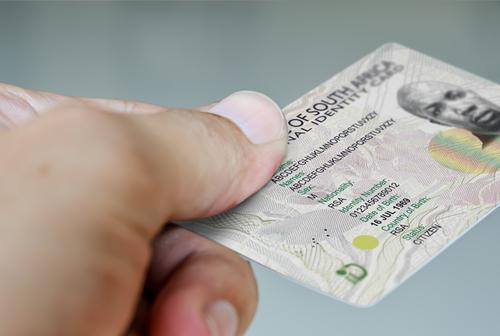South Africa is poised to embrace a new era in identity verification as the Department of Home Affairs (DHA) moves forward with its ambitious plan to phase out green barcoded ID books by 2027. This transition is a key component of the DHA’s Strategic Plan to 2030, representing a significant step towards modernizing the country’s identification systems, which will include the widespread adoption of Smart ID cards, digital identities, and e-Passports.
As part of this new approach, the DHA has embarked on a robust initiative to ensure that by 2029, all citizens will be enrolled in the Smart ID system. This sweeping transition isn’t merely about replacing old ID books; it signifies a leap towards enhanced security, efficiency, and accessibility in documentation for South Africans. By September 2024, over 28 million Smart IDs had already been issued, demonstrating the momentum of this transformative initiative—far exceeding the initial target of 13.75 million by 2030.
Moving forward, the DHA aims to issue a staggering 2.75 million Smart IDs each year, with plans to upgrade 10 more offices with live capture technology by March 2026. This is excellent news for naturalized citizens and permanent residents who have been using green ID books and will now have an opportunity to transition to Smart IDs and streamline their identification processes.
In an exciting expansion, the DHA is also partnering with banks to drastically increase the number of branches offering Smart ID and passport services from a mere 30 to an impressive 1,000 by 2028. This will significantly enhance access, making it easier than ever for South Africans to obtain essential documents close to home. Furthermore, a home delivery service for Smart ID cards and passports is set to be piloted in 2026, bringing further convenience to residents.
To support this ambitious digital transformation, the DHA is leveraging cutting-edge technology, including artificial intelligence and machine learning, to create a more digitally proficient department. Training thousands of officials in digital skills is part of this commitment to ensure that South Africa’s public service becomes not just more modern, but also more inclusive.
While there are still challenges to overcome—including addressing complaints about the location and staffing of some offices—the DHA remains steadfast in its pledge to become a fully digitized and decentralized entity. Minister of Home Affairs Leon Schreiber emphasizes that this transformative journey aims to “expand inclusion and deliver dignity for all,” reinforcing the positive intentions behind this comprehensive overhaul.
For South Africans still clinging to their green barcoded IDs, the message is clear: now is the time to prepare for this transition. The future is undoubtedly heading toward Smart ID cards becoming the new standard, marking a significant improvement in the country’s identification systems.
With these advancements, South Africa is paving the way for a more secure, efficient, and equitable approach to identity management, setting a progressive example for other nations to follow.
#SouthAfrica #WorldNews #BusinessNews #Politics #Tourism



